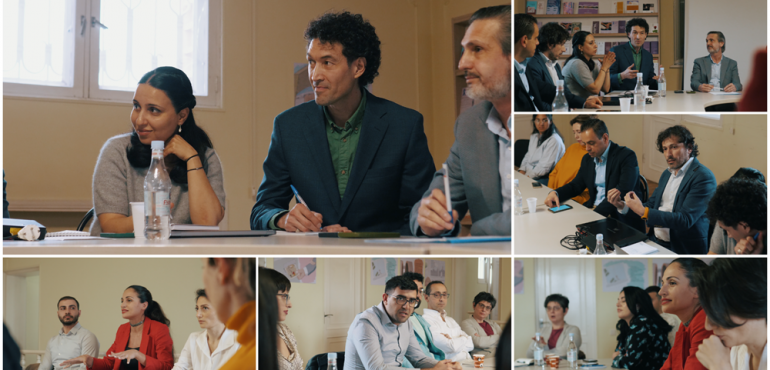

On April 2, 2025, a roundtable discussion titled "Building a Thriving Armenia: The Evolving Roles of Women and Men" brought together 29 participants from business, non-profits, academia, media, human rights organizations, and embassies. Co-organized by the Women’s Support Center, the Office of Social Discourse of the Baha’i Community, and Safe YOU.
The conversation centered around how gender roles are shifting in Armenia’s workplaces and society, and what it means to foster true equality without promoting uniformity. It was noted as unusual and refreshing to see so many men and individuals from various sectors attending a discussion on gender, contributing to a genuinely diverse and engaging exchange.
Participants discussed the persistent gender wage gap, the undervaluation of sectors where women dominate—such as education and social work—and the ongoing influence of social norms on career choices. While Armenia shows strong female representation in education and STEM, women still face barriers in leadership and high-level decision-making roles. These and many other themes were enriched with research findings in economics from Armenia as well as insights from international literature, shared by academic experts and other informed participants.
Another theme reflected on how family and school environments shape children's understanding of gender roles from an early age. There is a strong perception that boys in Armenian families are often given more freedom and independence, and they are less prepared for the demands of adult life and are not always taught to work hard or take responsibility. Girls, on the other hand, experience more restrictions and are expected to be more diligent. In schools, the lack of male teachers was also noted as a concern, as boys may struggle to find role models they can relate to. Most participants agreed that these patterns are not rooted in biological differences but in social norms that are passed down unconsciously within families and reinforced by institutions.
Social expectations in many Armenian families often place responsibilities like motherhood, caregiving, and household duties on women often limiting them from professional growth and full participation in important roles in society. This often creates a vicious cycle that places women in lower paid jobs further contributing to economic disparities. On the flipside, some participants shared encouraging real-life examples of how roles in the families are divided to allow for more equitable professional engagement of both spouses.
One metaphor echoed through the room: women and men are like the wings of a bird—only when both are equally strong can society truly rise. Some participants proposed that girls and women be equipped with skills and mindsets needed to join men in leadership roles as equals. Others questioned whether this approach might undervalue the unique qualities of each gender, resulting in a uniformity that still mirrors male-dominant norms.
This roundtable reminded everyone present that gender equality isn’t just a policy goal—it’s a path to collective advancement and lasting peace.